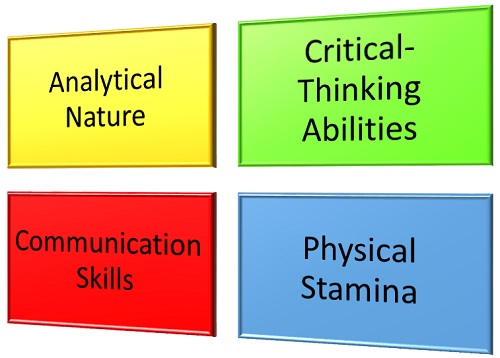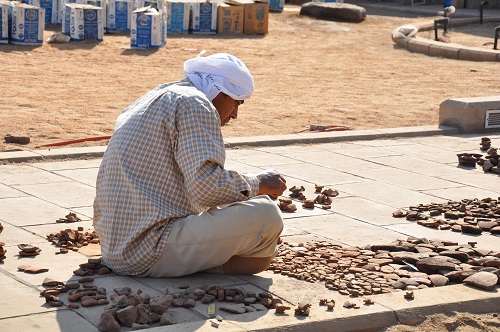If you’re interested in the past but want a more hands-on role than historian, you might consider a role as an archeologist, one of the highest-paying social science careers. Archeologists search for, excavate, study and preserve artifacts of past cultures and civilizations. To be an excellent archeologist, you need a variety of personality traits, according to the United States Bureau of Labor Statistics (BLS). You should have an analytical and detail-oriented mind, be a strong critical thinker who can evaluate a wealth of information, be able to communicate clearly even under high-stress situations and have the physical stamina for fieldwork.
An Analytical Nature
The best archeologists are great at analyzing both quantitative and qualitative data. Every facet of an archeologist’s work involves understanding and analyzing details. Miss even a subtle detail, and you could fail to make a major discovery that furthers the field of archeology.
The analytical part of your job duties comes into play long before you begin fieldwork. Professional archeologists don’t just start digging at random. They first have to identify dig sites, which they do through the use of remote sensing technology, surveying techniques and existing research in the field. If a team of archeologists is interested in the ancient pharaohs who lived thousands of years ago, for example, they would first study existing archaeological and anthropological research findings to identify where in Egypt they should undertake their search.
Attention to detail is a crucial aspect of the analytical skills needed in archeology, according to O*NET. Archeologists must pay attention to details that range from the precise locations of research sites to the exact ages and properties of the artifacts they uncover.
Critical-Thinking Abilities
Making sense of your findings requires more than close observation and analysis. When the artifacts you discover have properties that differ from your expectations, it takes critical thinking to figure out feasible scenarios that could explain what you’ve found. Drawing conclusions in the field of archeology – and the larger field of anthropology – means looking closely at this evidence of the past, thinking creatively about the possible explanations, and logically considering the question of which theories are most plausible.
Throughout your work in the field of archeology, your critical thinking skills are sure to come in handy in other capacities, such as solving problems when it comes to planning research and excavating artifacts in the field.
Communication Skills
Although you might imagine a lone archeologist sifting over the dusty artifacts of ancient civilizations, you probably haven’t given much thought to what happens next. Expressing their research findings, theories and conclusions in the form of presentations and written reports is one of the most important core tasks required of this occupation, according to O*NET. As a result, you need to develop strong skills in all aspects of communication – speaking, listening and writing – the BLS reported. Besides writing reports, you will need your communication skills to interview people currently living in the geographical area where your research is based.
Reading comprehension, too, is particularly important when building on the work of past researchers in your area of interest. You need to understand both the archeological findings and the anthropological theories that relate to the civilization or geographical region you are studying. You also have to understand the foundational concepts of anthropology.
Because archeologists often travel internationally for fieldwork, it’s helpful to have some foreign language proficiency as well as communication skills. Although knowing modern languages is certainly valuable, so can ancient languages, The Houston Chronicle reported.
Physical Stamina
IMAGE SOURCE: Pixabay, public domain
Archeologist isn’t a job where you can sit on the sidelines. Excavating artifacts buried deep in the earth and closely and carefully examining them in the laboratory requires physical dexterity and the stamina to engage in fieldwork. Often, being out in the field requires you to walk or hike long distances while bearing the heavy load of excavation equipment, according to the BLS. Beyond stamina, some of the physical abilities you may need to be an archeologist include good vision, coordination, the finger dexterity to hold and assemble small pieces and the arm-hand steadiness and trunk strength to participate in excavating artifacts.
You will start developing the physical skills you need to succeed in archeology during your college studies through laboratory classes and hands-on work on mock digs, internship opportunities and fieldwork experiences.
Additional Resources
What Is the Difference in Becoming an Anthropologist and an Archeologist?
How Do the Two Fields of Anthropology and Archeology Work Together?
I Know Being an Archeologist Isn’t Like Being Indiana Jones. What’s a Typical Day as One?
What Are the Differences Between Biological, Cultural and Linguistic Anthropology?


